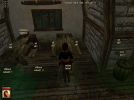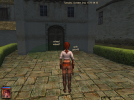The tricky part would be figuring out the gm viewer and tools. But it's going to work out somehow when I get there. I'm going to need a few sit locators, basically I want to cram as many people as possible into a quest tavern...
Speaking of sit locators in taverns, have you got any tips which ones to use in Santiago? I entered and left a few times and sit1 and sit2 in my picture are the only ones I think that never spawned a character. Also I've heard of some recent changes to sit locators in several taverns, anything I need to factor in? Or should I even use a vskip?
The changes to locators are in those which use the "SmallTavern" model, e.g. San Juan and Sao Jorge. For the purposes of gambling, one or two seat locators in each tavern are in group "candles" to prevent random characters from using them, so that you won't have someone sitting on your lap when you sit down for a game of dice or cards. But "candles" is intended for candles, so the lighting system puts a candle glow on them. So I changed these locators from "candles" to "sit2" - and then had to check where they're used for character definitions and in storylines. Santiago tavern never had a gambler until the latest update, therefore never had a "candles" seat locator. I've added a gambler and changed the seat opposite him to group "sit2". You should find him further back in the tavern.
Using a vcskip is a good idea, it prevents random characters from appearing, so the only characters who will be in the tavern are those who are permanently there. You should find those defined in "PROGRAM\Characters\init\Taverns.c" and "PROGRAM\Characters\init\Usurers.c" - the local smuggler agent is in the latter.
And something else: How would i base a single quest case on five different other quest cases? So those five could be fulfilled in any order. I don't know if I can do this with the typical l1, l2 etc. win conditions in my case. I thought perhaps I can give every quest case a pchar.quest.firstthing = "done"; then a pchar.quest.secondthing = "done"; etc. and in the end check if those five all have status done.
Using "l1", "l2" etc. is the way to require five different
conditions to be met. For example, in "Ardent", I used that to check that two different soldiers are dead, it's night time, you're standing by the door and you own a lockpick. If you want five
quests to be completed then setting those attributes is the way to go. If you want them to be completed in any order then each of the five quests, upon completion, must check all four of the attributes for the other quests, and trigger the end quest if they're all set.
As for TOOL, here's how it looks:
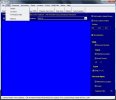
That's how you open the "Locators" window:
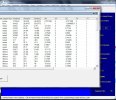
"PositionX", "PositionY" and "PositionZ" are the coordinates of the locator. "XX", "XY", "XZ" etc. control which way the locator is facing. The easiest way to set those is to find another locator which already exists and is facing the way you want your locator to face, then copy the values from that locator to your new one. The locator's facing is the way a character will face when sent to that locator.
TOOL has a nifty trick, it can export the locators to a text file:
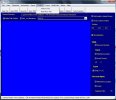
You can then edit the text file with the text editor of your choice. That way you can put a new "goto" locator with all the others, instead of tacking it onto the bottom. It also means you can play the game with "VISIBLE_LOCATORS" set, find an existing locator near where you want your new one, then edit the text file to copy that locator and rename the copy. Then use "Read from File" to import the text file back into the locator file and use TOOL to edit the coordinates. Another good trick is to export the locators to a text file, then open the location model, read in the text, and save the result as a new file. You can then open this file with GM Viewer and see the location with all the locators.















